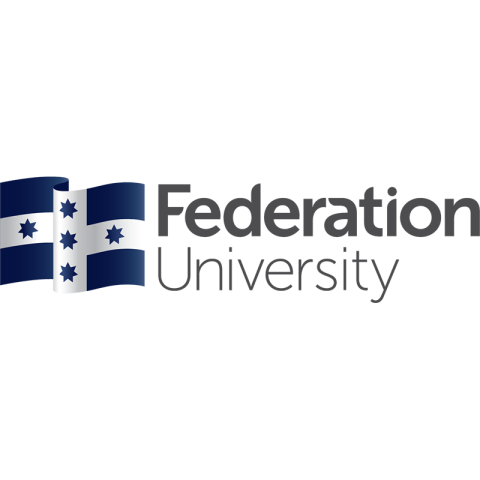
How a strong network can enhance the PhD journey
You may also like
Research can be solitary work, and the geographic distance from colleagues and peers in specialised fields isolating. However, in a digital post-Covid world, research students can use their wider network to connect, collaborate and reduce these effects. Leveraging these networks also helps them develop skills that are transferrable to jobs and workplaces beyond the university. Supervisors, for their part, can motivate and empower their research students to use their networks to achieve timely completion.
Here, we offer practical tips, for both students and supervisors, for strengthening networks to enhance their PhD journey.
Build up your social network
Interacting and exchanging ideas with early career and fellow research degree students can provide PhD candidates with valuable emotional support and a sense of camaraderie. Peer support can include informal sharing of resources or organising social opportunities to buffer against PhD stress. Students (and supervisors) can also develop more formal opportunities such as journal clubs, writing groups or peer-review sessions. You can always tap into your graduate research school to help you establish and promote formal peer-based opportunities. Personal and professional mentors, especially those independent to your project, can also be important to provide a different perspective when navigating the PhD journey and career ambitions.
Tap into established university resources
Academic study support services within the university – from the library’s assistance in research and academic writing to IT support that offers research-based software and technology – can also boost your research network. Supervisors have a role in facilitating access to these resources and services and can help students overcome any stigma around their use.
- Resource collection: Advice for surviving your PhD dissertation
- 10 platinum rules for PhD supervisors
- Video: Celebrating failure and other advice for PhD supervisors
Other services include medical and mental health support and career assistance (for help with writing CVs, for example). Seek out, too, opportunities to represent the student body, which will also provide leadership development.
Higher degrees by research skill development programmes may offer personal and professional development to not only support timely completion but assist in acquiring a range of transferable skills and facilitate networking opportunities. Many universities also have research centres and groups that contribute to the research culture and build a sense of connection with students and staff.
For financial assistance, university funding opportunities such as scholarships and grants may be available to support your research project costs or offset living expenses.
Look for discipline-specific collaborations
Often the first collaboration a student experiences is with their supervision panel. Clear roles and healthy team dynamics enable productive working relationships and enrich the student’s learning experience and project. Supervisors can also guide students to make connections with research end users. They can identify professional networking opportunities, help students broker partnerships with industry, engage and guide them in peer review of journal articles or invite them to contribute to grant writing. Supervisors can model this through their own networks, or having their own mentors or communities of practice, and it can be important to help in building supervision capacity, especially for new supervisors.
Beyond supervision, students can sign up to receive newsletters, events and job postings from relevant organisations in their discipline. Conferences provide opportunities to connect with other academics and mentors in your field.
Engage and collaborate with research end users
A research end user is anyone – whether an individual, community or organisation – who will use or benefit from the research. Collaborative research with end users is increasingly valuable in Australia since it not only aligns with government policies for research but extends transferrable skills to enhance graduate employability and leads to significant impact on the community.
As researchers, students can be encouraged to engage with their research end user by attending conferences and industry events, creating and managing a LinkedIn profile and presence, and subscribing to professional societies or industry representative bodies via student memberships. These actions keep them informed about contemporary issues and news. Supervisors can also help students pursue new connections and opportunities. This might involve assisting students to set up initial meetings to understand the challenges facing a research end user and highlight how a university partnership can add value to the organisation.
Co-funded and co-designed industry projects and PhD Internships can be an extension of higher degrees by research training and enrich students’ learning experience, build professional networks and extend transferrable skills to enhance career options. For example, Federation University is ranked fifth in Australia and first in Victoria in meeting the government’s higher degree end user engagement metrics and offers industry-connected projects and internships.
A successful PhD journey requires candidates to build strong academic knowledge and skills to conduct research, along with personal attributes such as curiosity, love of learning, persistence, resilience and time management.
We hope these practical tips help research students and supervisors think about ways to enhance their success in tackling a PhD, improve connections and collaborations to reduce feelings of isolation in the PhD journey, and how they can make the most of their network.
Meghan Casey is senior lecturer in the Institute of Health and Wellbeing and graduate certificate in research coordinator and higher degree by research coordinator in the Graduate Research School; Andrew Barton is deputy dean of the Graduate Research School; and Madhu Chetty is a professor in information technology and higher degrees by research coordinator. All are at Federation University Australia. Rose Ferguson is a lecturer in the School of Behavioural and Health Sciences at the Australian Catholic University.
If you would like advice and insight from academics and university staff delivered direct to your inbox each week, sign up for the Campus newsletter.




